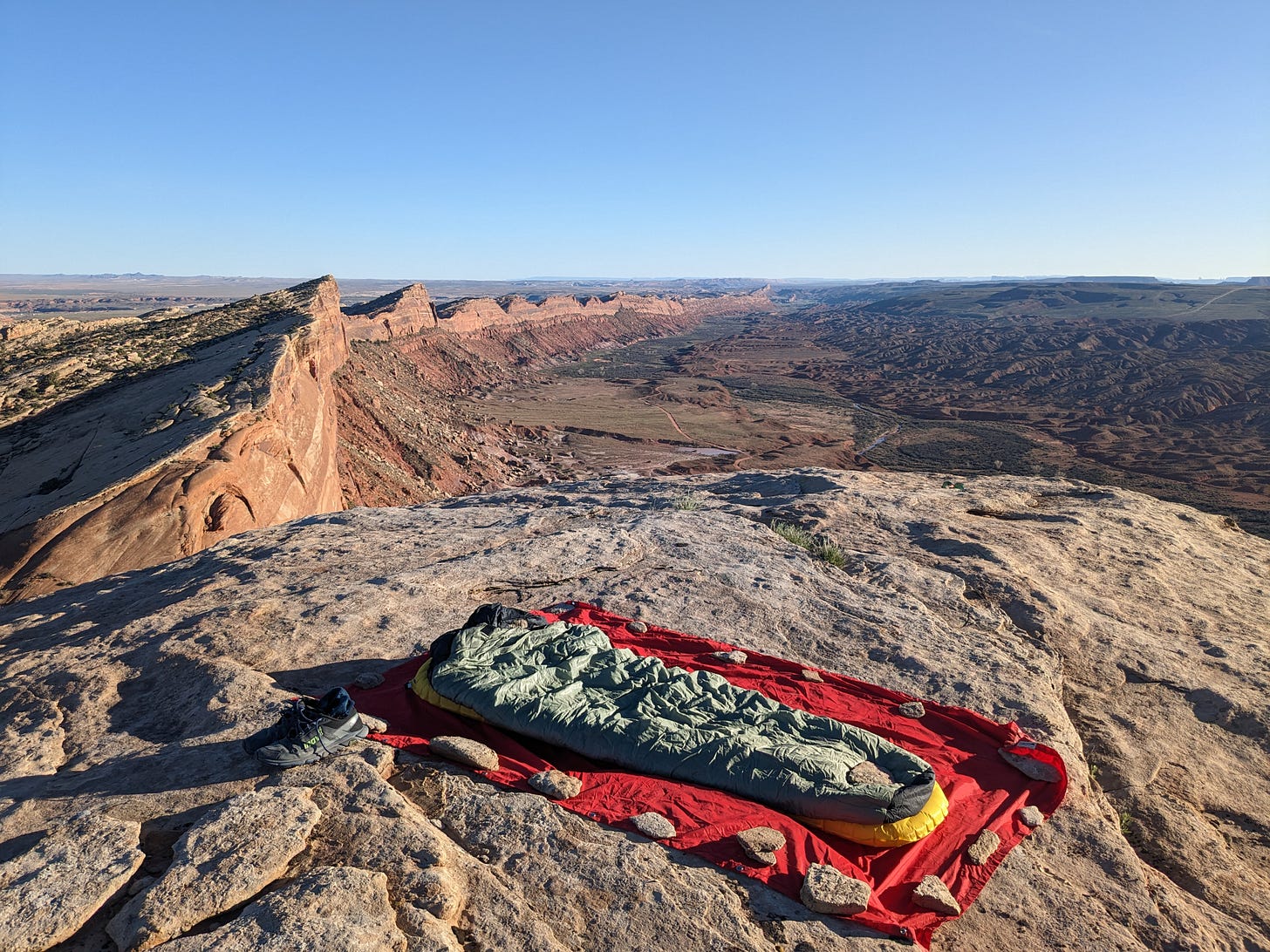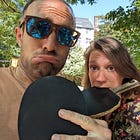Born in the USA
Why dirtbagging emerged in the Far West
As I cycled and danced across Western Europe in my late thirties, I made lots of smart, passionate, and outside-the-box friends: the kind who shape their careers to attend frequent dance festivals, take multi-month cycling trips, and otherwise live out their dirtbag dreams.
Yet as I came to know them better, I began to notice something curious.
Compared to my American friends with similar interests and backgrounds, my European friends took comparatively smaller risks with their careers.
These otherwise open-minded and norm-bending Europeans were more attached to their jobs, governments, and social security systems than their American counterparts. They played things a bit more safely, and they extended their collective middle fingers a bit less toward “the system.”
It makes sense.
In the rich European countries, the state protects you from all sorts of misfortunes, calamities, and risks via universal healthcare, unemployment insurance, labor protection, and paid parental leave. The more successful you become, the more you’re taxed and regulated. As a result, everything is pulled toward the middle. You can’t fall too far, nor can you rise too quickly. Europe produces very few homeless people, and very few billionaires.
To live in a rich, social democratic country is a beautiful privilege. I’ve seen how European-style safety nets enable innovation in the arts, academia, and activism.
But when it comes to a certain brand of wildcat freedom—the kind that lets you make good money in a short amount of time, orient your life around wilderness exploration, and generally play by your own rules—then the New World is the place to be.
When you live in the United States, you’re more vulnerable to risk and failure. But you’re also more free to try things differently, “give it a go,” and crash and burn in your own way.
I see this most clearly in the realms of entrepreneurship and education. If you have a crazy new business idea or you want to experiment with a radical style of education (like unschooling), then you probably want to be in America—because in Europe, homeschooling is mostly illegal, and entrepreneurs are less empowered to “move fast and break things.”
Living in Europe helped me understand my home country for what it is: neither good or bad, but rather, a diverse landscape of extreme possibility. The U.S. has extreme wealth, extreme poverty, and extreme subcultures. For some, life in America is harsh and unforgiving. For others, it offers a certain je ne sais quoi that’s hard to find elsewhere.
This is why the beating heart of dirtbag culture was born, and continues to thrive, in the United States—and especially the Western United States.
Because only here does one find genuine entrepreneurial freedom paired with genuine risk of homelessness.
Only here does one find vast tracts of mountain, forest, and desert protected by the federal government and rendered accessible by roads and campgrounds.
And only in the Far West does the radical, countercultural spirit of the 1960s still pulse beneath the rocky soil, beckoning wanderers of all nationalities to shed their skins and find their fortunes, here in the dirty, messy chaos of possibility.
Some people do not find—indeed, cannot find—refuge where others imagine they could or should find it; some forgo anchors for lines of flight; some instinctively spurn moralistic edicts set forth by others; some find—or are forced to find—solace or sustenance in nomadism, cosmic hoboism, unpredictable or uncouth identifications, illegible acts of disobedience, homelessness, or exile [other] than in a place called Home.
—Maggie Nelson, On Freedom
[This is another excerpt from the Dirtbag Rich manuscript-in-progress.]
See also:






I do agree with a lot of this, especially the sentiment or "je ne sais quoi" you are trying to communicate! I do think you capture the general culture of both places perfectly.
However, speaking from my own experience as a founder, I would disagree with the statement that entrepreneurs in Europe are less *empowered*. It is not about limitations in practice or regulation, rather I would argue that it's both easier (and yes, safer) to start a business in Europe in MANY ways. The exception being the venture capital aspect of things. Rather I think this almost only comes down to the cultural aspects that you describe so well. Perhaps people in Europe take less risk, but mainly because we, as a culture and society, are not encouraged to do so.
Outside of entrepreneurship, I think homeschooling is a great example of a more practical and legal aspect stopping some people to live this way in Europe. If you have any other such examples it would be interesting to hear about them.
I have never lived a classical dirtbag life, I have exited the traditional work life on a much more privileged basis. But I'm still truly hooked by your writing and interviews and find them all very empowering for me to continue living like this and perhaps also challenge myself to take even more risk in this regard.
Yeah - I'm fascinated to hear your thoughts on this and I like the narrative you're forming here. A thing I'd throw in is that there are some parallels between what "the West" and "wilderness" represented to dirtbags, and what "the East" represented to the Hippies and the first Lonely Planet-style backpackers. Both of them are making this interesting attempt to correct modern problems via immersion in primeval or ancient environments. Broadly speaking, in the US that impulse often looks like immersing yourself in wilderness. In Europe, the pull was more towards ancient or foreign cultures. Nowadays you do still find some similar characters on (for instance) the PCT that you'll also find in hostels in SE Asia, with slightly different accents.
Also, on a more personal note, trying to access that neutral feeling towards the US as neither good nor bad has been a thing I've been wrestling around with too. It's an easy time to be mad at the US, but also...